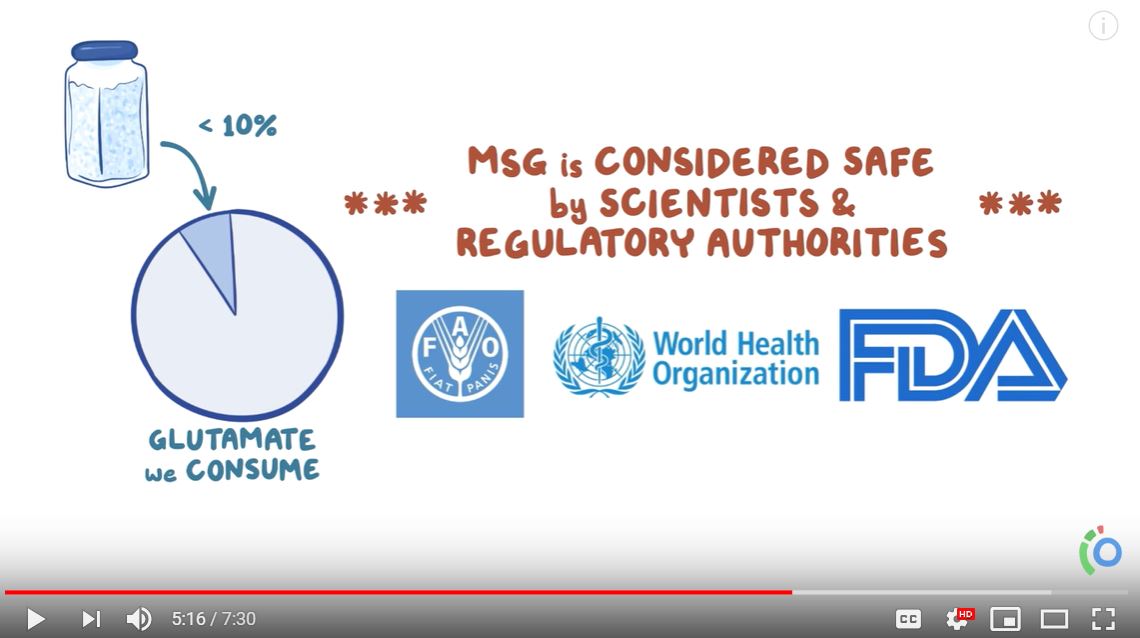
This video is the seventh installment of the International Food Information Council Foundation’s “Nutrition 101” video series, presented in partnership with Osmosis, a group that focuses on health science education, highlighting the basics of several nutrition topics.
Some excerpts:
“Glutamate is the most abundant amino acid found in nature, and it’s one of the 20 amino acids that make up proteins in the human body. Because glutamate is synthesized as part of the normal metabolic process, it is considered a non-essential amino acid. In other words, we don’t technically need to get it from food. Our bodies synthesize about 50 grams of glutamate each day and store about 4.5 pounds of glutamate in major organs like the brain, muscles, kidneys and liver. On average we eat about 10 to 20 grams of glutamate each day, mostly from protein-containing foods like meat, cheese, nuts and legumes.
“Whether consumed from food or in the form of MSG, free glutamate is detected by umami receptors and metabolized in the same way. In the saliva in the mouth, MSG separates into its original two parts—glutamate and sodium—and then glutamate binds to its receptors to elicit an umami, or savory, flavor sensation. Then, in the stomach, more glutamate receptors activate the vagus nerve, which notifies the brain that protein-rich foods have entered the stomach. The brain then tells the stomach and intestines to prepare for protein digestion….
…”To recap, glutamate is the amino acid responsible for the flavor of umami and plays an important role in digestion by signaling for protein digestion and fueling the cells of the GI tract. Our bodies make glutamate, and it’s also present in a variety of whole foods. Glutamate can also be added by seasoning foods with MSG. In the saliva in the mouth, MSG separates into glutamate and sodium, which is why the body doesn’t differentiate between the glutamate in umami seasoning and the glutamate in everyday foods. Extensive research has shown that MSG is safe to consume, doesn’t cause headaches, and could be a helpful tool for lowering the overall amount of sodium people eat.”
Visit the IFIC (International Food Information Council) website to read the related article, written by Kris Sollid, RD: https://foodinsight.org/nutrition-101-video-series-monosodium-glutamate-msg/

